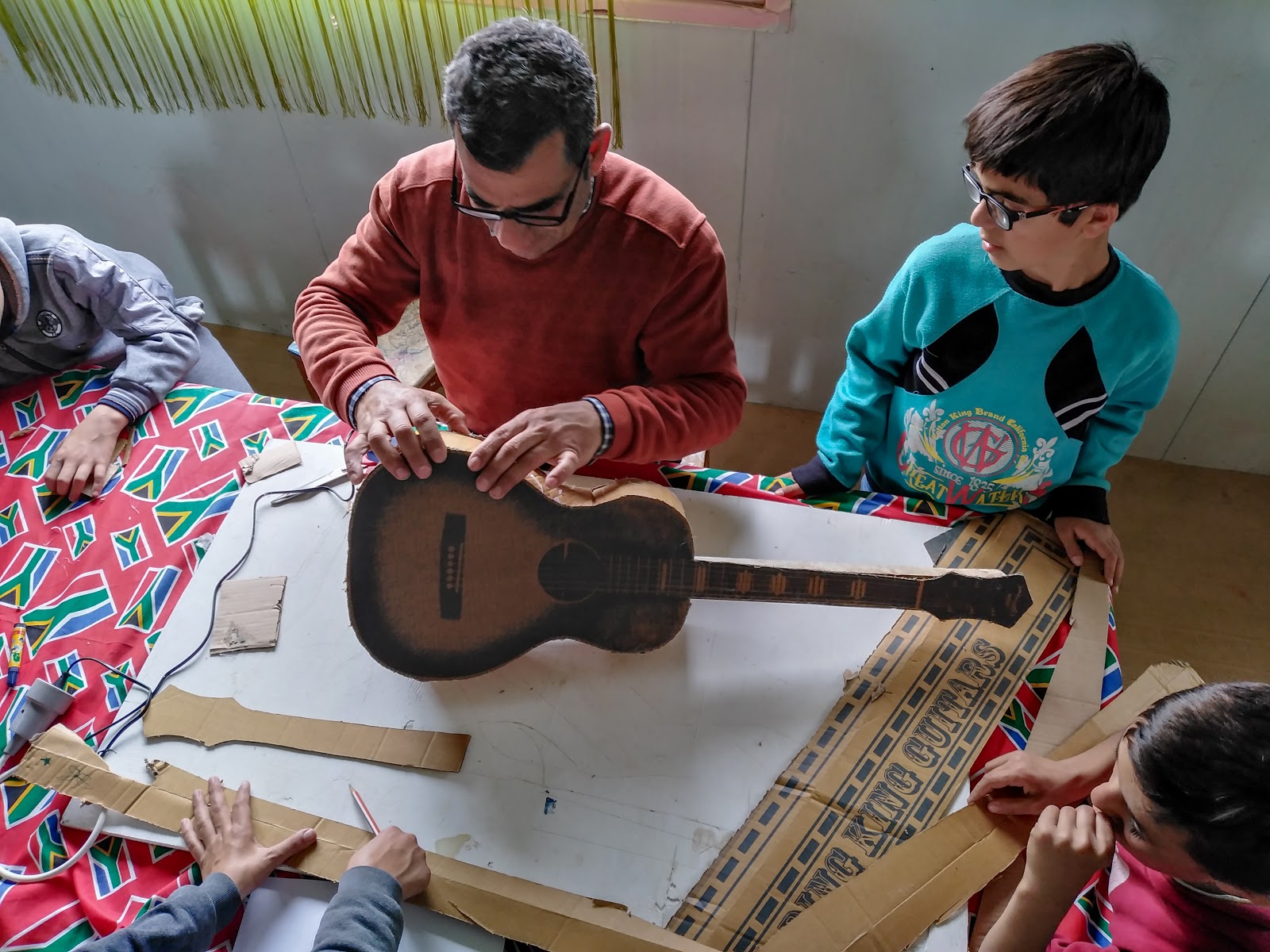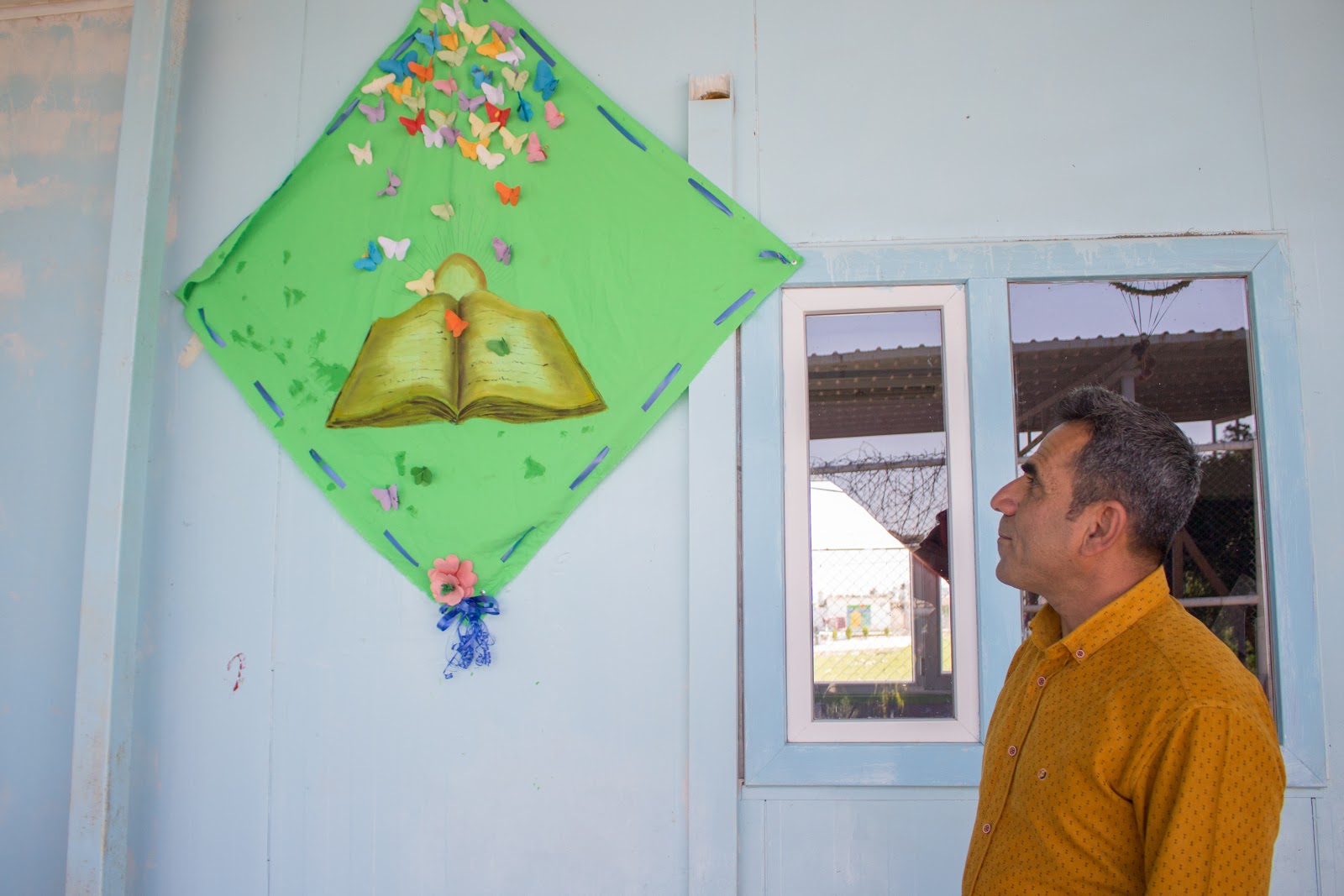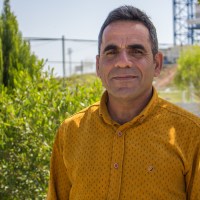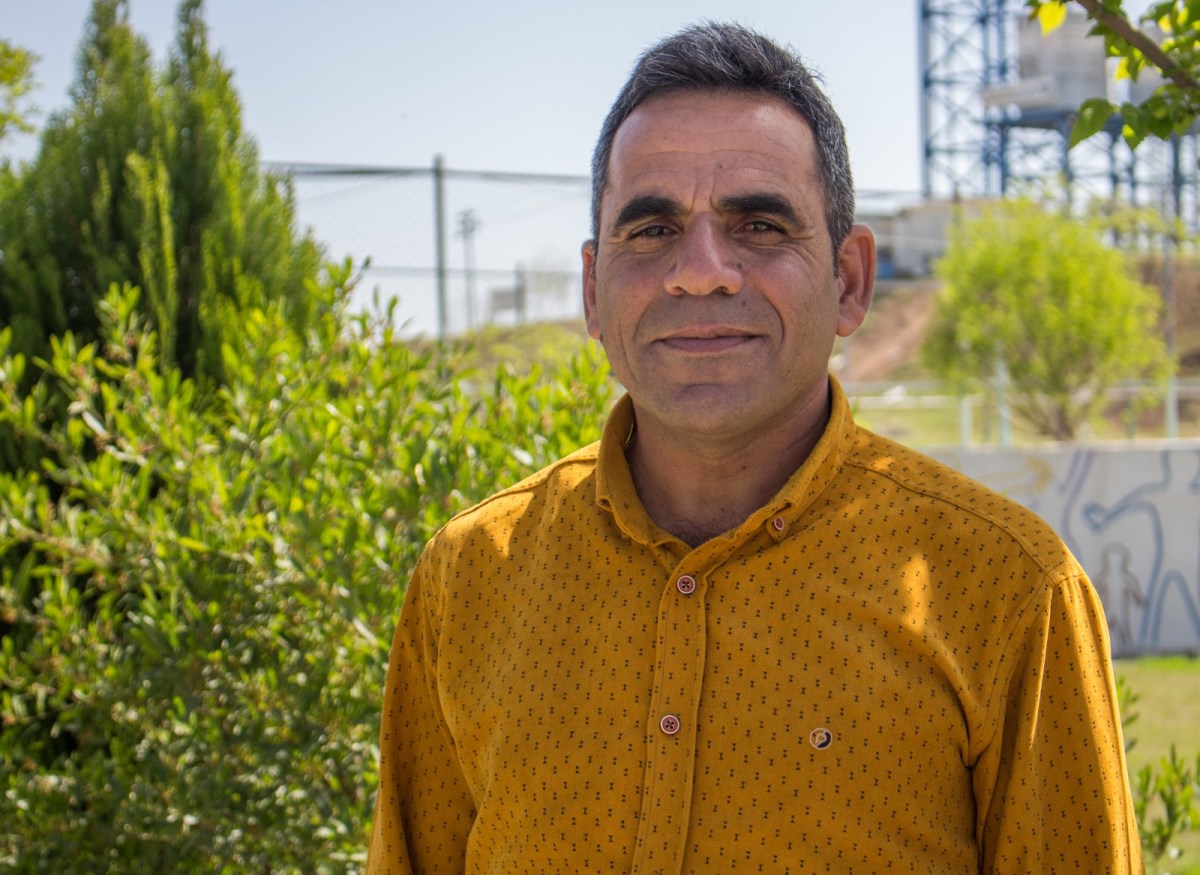Majid fled Syria with his family for Iraq. His son desperately wanted to go on to Germany, but Majid wouldn’t let him risk the sea crossing, knowing how many have drowned that way.
Eventually Majid’s son reached Germany a different way. Five months later, he tragically drowned in a lake near his new home.
Majid escaped war, only to lose his beloved son.
He knows something about determination, loss, and grief. But despite all he’s been through, he also knows something about hope.
He has not lost his love of painting or art. He enjoys music and nature. He wants people to share his love for them. “I have hope,” he says quietly.
Today he is sharing that hope with dozens of children who fled war just like he did. He works at the Friendly Center, our dedicated space for refugee kids to play, learn, and heal from the trauma of war.

Prior to the war, Majid worked in Syria as a painter. Now he puts on art exhibitions for refugee children.
He loves his job because he can use his love of art and his desire to spread hope to connect with the children.
Recently Majid helped put together an art exhibition at The Friendly Center, a safe space within a refugee camp where kids can come to learn, play, and heal from childhood trauma.
Majid was delighted by the kids’ response to the art. “We have discovered so much creativity and innovation in the children! When we opened the art exhibition in the center we spent months discussing the materials and concepts of the exhibition. We spent months making the artwork as well. I think that this helped the children live more in reality and decreased the hours that they spend using smart devices. If we involve children in artwork, they will be healthier. Through these activities we discovered new talents and new hopes for the children.”

Majid wants everyone to understand that Syrian people like to improve themselves and the things around them. He is proud of the way the refugee camps has transformed into a small town. People have developed and improved their spaces and started businesses—even as refugees.
Majid is proud to be Syrian. “Syrian people are special, and they have abilities. Believe in us! We are strong people and we love improving and developing ourselves. This is our culture.”
In addition to the children in the camp, Majid also has three children at home. He wants to do his best for his kids, to give them a better life, to continue to spread hope. Majid knows these children are special: “They are my future.”


